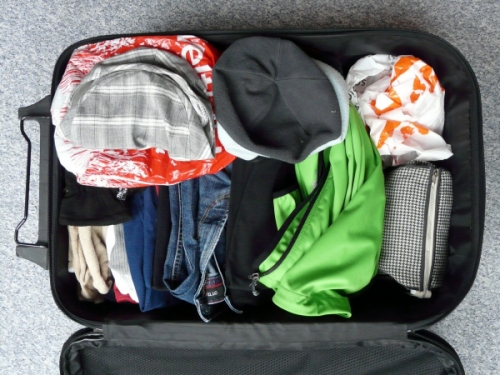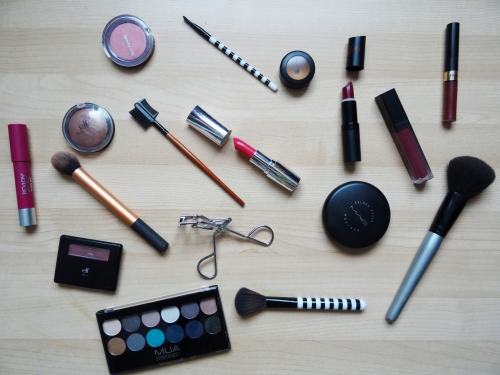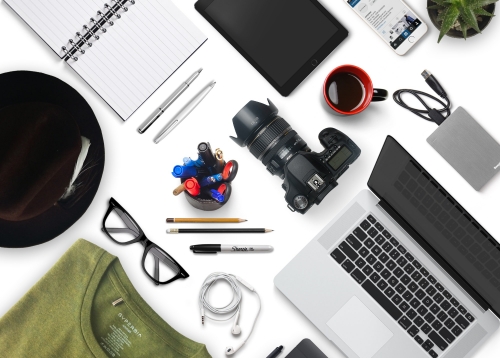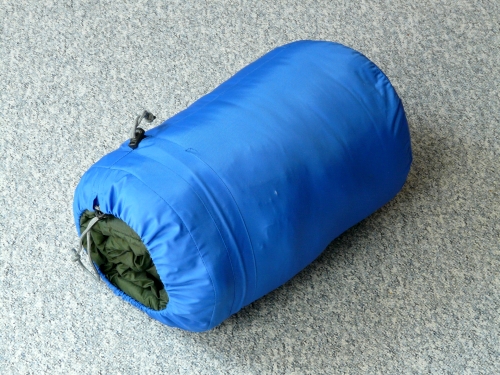In a recent article, I wrote about items you shouldn’t forget about when preparing for a trip.
Well, this is the other side of the coin.
Here are some items you could probably do with leaving at home.
So without further ado, here’s how not to overpack on your next trip!
I. Excessive Clothing
This is probably one of the easiest things to overpack.
No matter how long a trip is, you really don’t need to bring your whole wardrobe.
In fact, only packing a week to ten days’ worth of clothing is ideal.
In most cases, you can just get things washed at a laundromat or even hand wash your clothes in a sink.
Top Tip:
If you don’t know what the weather will be like at your destination, then bring clothes that can cover a range of temperatures and weather conditions.
This also applies if you know you’ll be trekking around colder climates.
Also, go for clothes that can double up in use.
For example: zipped off cargo pants can be used full length for cold windy weather and then as shorts for those warmer days.
You should also go for something like a fabric face mask/scarf that can also be used as a beanie or even as a hairband.
II. Excessive Beauty Products
It’s completely understandable that while at home, you’d have your preferred cosmetics ready and at hand.
But while on the road, things are a little different.
It’s not overly important to stay pristine while on the road. Most people probably won’t even be able to tell the difference.
Having a regular shower is about as far as the majority of backpackers tend to accomplish.
Drying Up
If you’re staying in hostels and/or hotels, the room or reception will usually have a hairdryer available.
If not, other guests are sometimes willing to share.
When none of these options are available, towel drying and air drying are the last resort.
Hairstyling products like straighteners and curlers are rarely ever available, but also rarely ever needed.
Cleaning Up
Products like shampoos and conditioners can be really difficult to get through airport security.
So why not leave them at home and buy a new bottle when you arrive at your destination?
Plus, if you’re going abroad, you might even find something with a pleasantly unique scent you’ve never used before.
III. Excessive Electronics
Packing a phone, a laptop, a camera, a media player, a set of speakers, and numerous chargers and cables can really take up space in a backpack.
So why not reduce this amount?
In this era of technology, most of these devices can usually be found in a phone or even on a smartwatch.
If you’ve got a simple point and click camera, you might be better off just using your phone camera.
In many cases, such photos are typically of the same quality.
There’s no real need to pack a GPS system if you’re hiking or traveling around cities as there are so many offline map applications on the market today.
Some are free downloadable map applications and some are specifically designed for off-road trails.
In such cases, they have all the necessary trail markers included.
IV. Sleeping Bags/Liners
Obviously, if you’re camping, then it’s a lot better to pack a sleeping bag.
But if you’re staying in hostels, hotels, or even mountain refuges, it’s really unnecessary to bring one with you.
They will most likely be provided by the accommodation.
In fact, most hostels and similar accommodation will actually ask you not to use any sleeping bags.
This is because they can really increase the spread of bed bugs.
That’s one of the last things you want to experience while traveling.
V. Travel Pillows
Travel pillows can be great for long journeys, such as long haul flights or overnight bus rides.
But they can also be a real bane as they tend to be pretty big to carry everywhere.
Unless you suffer from neck or joint problems, or if you intend to travel long distances every other day, then it might just be better to craft your own version.
You can easily do so by rolling up a sweater or a similar item of clothing.
Creating multiple uses for items is a great way to save space in a backpack.
If you are intent on bringing a travel pillow, then something inflatable might be a good solution.
After all, you can always compress it when you’re not using it.
On that same note, a pillowcase is not exactly essential, for the same reasons as a sleeping bag – the accommodation will usually provide for you.
Conclusion
So there you have it, this is my take on how not to overpack when you are traveling abroad, going on a road trip, camping, hiking, or in any other outdoor adventure.
When learning how not to overpack, we would also recommend using this simple trick:
- Jot down on a piece of paper (or phone) everything you want to take with you.
- Then, circle all the essentials, and cross off all the items that turn out to be an unnecessary surplus.
- Depending on how much space you have left, you can take some of these latter items too.
Recommended Read: The Ultimate Hiking Items Checklist




